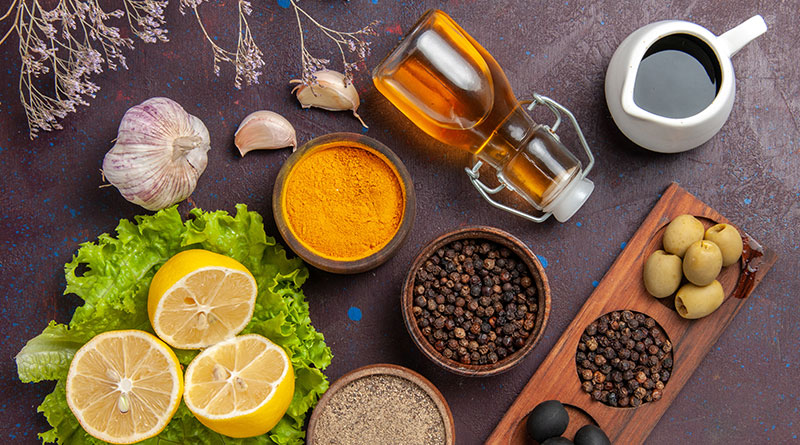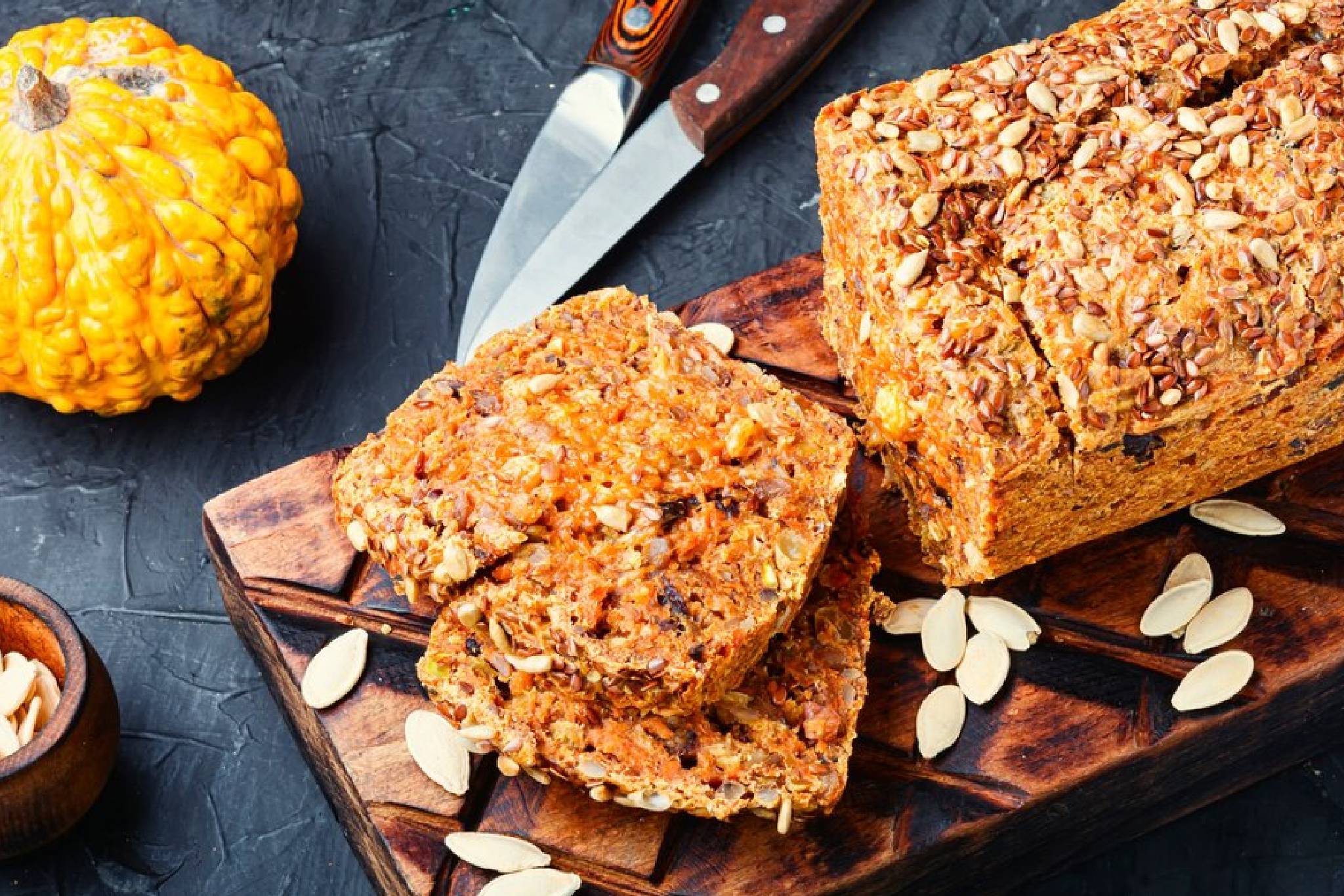Blood clots are a serious health concern and can lead to life-threatening conditions such as heart attack, stroke, and deep vein thrombosis. Blood thinners are often prescribed to patients at risk of developing these conditions. However, some people may prefer natural remedies that can help prevent blood clots without the use of medication.
In this blog post, we will explore the top 10 natural blood thinners that you can incorporate into your diet and lifestyle for a healthier circulatory system.
Garlic
For centuries, garlic has been a well-known spice recognized for its numerous health benefits. It is rich in allicin, a compound that helps to reduce blood clotting. Studies have shown that regular consumption of garlic can help to reduce the risk of cardiovascular disease by improving blood flow and reducing blood pressure.
Feature of Garlic
- Contains allicin, which reduces blood clotting
- Helps to improve blood flow
- Lowers blood pressure
- Has anti-inflammatory properties
Ginger
Ginger is a root that has been used in traditional medicine for thousands of years. It contains compounds that help to prevent blood clots by reducing the stickiness of platelets. Ginger also has anti-inflammatory properties that help to reduce inflammation in the blood vessels, which can improve blood flow.
Feature of Ginger
- Reduces the stickiness of platelets
- Improves blood flow
- Has anti-inflammatory properties
- May help to reduce nausea and vomiting
Turmeric
In Indian cuisine, turmeric is a frequently used spice. It contains a compound called curcumin, which has anti-inflammatory properties that can help to prevent blood clots. Studies have shown that curcumin can help to reduce the risk of cardiovascular disease by improving blood flow and reducing inflammation.
Feature of Turmeric
- Contains curcumin, which has anti-inflammatory properties
- Helps to prevent blood clots
- May improve brain function
- May help to reduce the risk of cancer
Cinnamon
Baking is a common use for cinnamon, which is a well-known spice. It contains compounds that can help to prevent blood clots by reducing the stickiness of platelets. Cinnamon also has anti-inflammatory properties that can help to improve blood flow and reduce inflammation.
Feature of Cinnamon
- Reduces the stickiness of platelets
- Has anti-inflammatory properties
- May help to reduce blood sugar levels
- May improve brain function
Cayenne Pepper
Cayenne pepper is a spice that is commonly used in spicy dishes. It contains a compound called capsaicin, which helps to prevent blood clots by reducing the stickiness of platelets. Capsaicin also has anti-inflammatory properties that can help to improve blood flow and reduce inflammation.
Feature of Cayenne Pepper
- Contains capsaicin, which reduces blood clotting
- Has anti-inflammatory properties
- May help to reduce pain and inflammation
- May improve digestion
Fish Oil
Fish oil is a rich source of omega-3 fatty acids, which have been shown to help prevent blood clots. Omega-3 fatty acids can help to reduce the stickiness of platelets and improve blood flow. Fish oil supplements are widely available and can be taken daily to help prevent blood clots.
Feature of Fish Oil
- Omega-3 fatty acids, abundant in it, aid in the prevention of blood clots.
- Improves blood flow
- May help to reduce inflammation
- May improve brain function
Vitamin E
Vitamin E is an antioxidant that helps to prevent blood clots by reducing the stickiness of platelets. It also has anti-inflammatory properties that can help to improve blood flow and reduce inflammation. Foods that are rich in vitamin E include nuts, seeds, and leafy green vegetables.
Feature of Vitamin E
- Reduces the stickiness of platelets
- Has anti-inflammatory properties
- Helps to prevent blood clots
- May improve skin health
Ginkgo Biloba
For thousands of years, Ginkgo Biloba, an herb, has been utilized in traditional medicine. It contains compounds that can help to prevent blood clots by improving blood flow and reducing inflammation. Ginkgo Biloba supplements are widely available and can be taken daily to help prevent blood clots.
Feature of Ginkgo Biloba
- Improves blood flow
- Contains compounds that prevent blood clots
- May improve cognitive function
- May help to reduce anxiety and depression
Grape Seed Extract
Grape seed extract is a natural supplement that is rich in antioxidants. It contains compounds that can help to prevent blood clots by reducing the stickiness of platelets. Grape seed extract supplements are widely available and can be taken daily to help prevent blood clots.
Feature of Grape Seed Extract
- Contains antioxidants that prevent blood clots
- Improves blood flow
- May help to reduce inflammation
- May improve cognitive function
Dark Chocolate
Dark chocolate is a delicious treat that also has health benefits. It contains compounds that can help to prevent blood clots by reducing the stickiness of platelets. Dark chocolate also has anti-inflammatory properties that can help to improve blood flow and reduce inflammation. However, it is important to choose dark chocolate that is low in sugar and high in cocoa content for maximum health benefits.
Feature of Dark Chocolate
- Contains compounds that prevent blood clots
- Has anti-inflammatory properties
- May help to reduce blood pressure
- May improve heart health
Conclusion
Incorporating natural blood thinners into your diet and lifestyle can help to promote a healthier circulatory system and reduce the risk of blood clots. Garlic, ginger, turmeric, cinnamon, cayenne pepper, fish oil, vitamin E, ginkgo biloba, grape seed extract, and dark chocolate are all natural blood thinners that have been shown to have health benefits.
It is important to consult with your healthcare provider before adding any new supplements or making significant changes to your diet. By combining these natural remedies with a healthy lifestyle, you can help to improve your overall health and reduce the risk of cardiovascular disease.
FAQs
Q1: Can natural blood thinners replace prescription blood thinners?
Ans: No, natural blood thinners cannot replace prescription blood thinners. If you have a medical condition that requires blood thinners, it is important to work with your healthcare provider to determine the appropriate treatment plan.
Q2: How much of a natural blood thinner should I take?
Ans: The appropriate amount of a natural blood thinner can vary depending on the individual and the specific supplement. It is important to consult with your healthcare provider to determine the appropriate dose for your needs.
Q3: Are there any side effects of natural blood thinners?
Ans: Some natural blood thinners can cause side effects, such as stomach upset, diarrhea, and allergic reactions. It is important to talk to your healthcare provider before taking any new supplements and to monitor for any potential side effects.
Q4: Are natural blood thinners safe for everyone to take?
Ans: No, natural blood thinners may not be safe for everyone to take. Some supplements may interact with certain medications or medical conditions. It is important to talk to your healthcare provider before taking any new supplements to determine if they are safe for you to take.
Q5: Can I get natural blood thinners from my diet alone?
Ans: While incorporating certain foods into your diet, such as garlic and ginger, may provide some natural blood thinning benefits, it may not be enough for individuals with medical conditions that require blood thinners. It is important to talk to your healthcare provider to determine if supplements or medication are necessary for your health needs.
Sahil Sachdeva is the Founder of curemedoc.com and a Digital Marketing professional with years of experience. If you need help in Content writing and want to increase your website ranking, connect with him, as he has some premium websites where you can share blogs with DoFollow links and increase your website’s ranking on Google.





